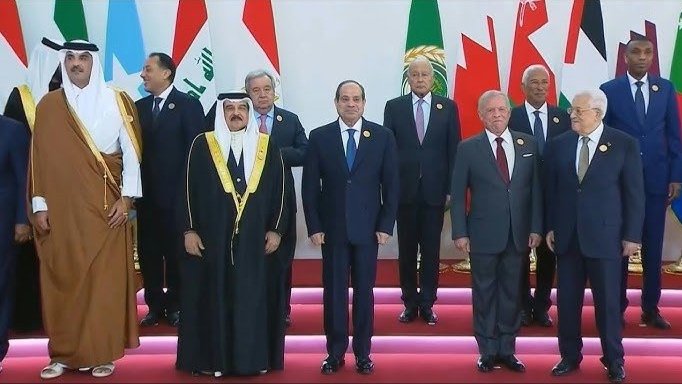Our Insights
Featured Posts Selected by Our Experts
Explore all of our Insights, Interviews, Commentary, and More
Media Type

Talking Points | U.S.-China Post-“Liberation Day” - What’s Ahead
The Administration’s “Liberation Day” tariff announcement has already sparked retaliation and potential escalation with China, the world’s second largest economy. While a tariff rate of an additional 34% was announced, combined with pre-existing tariffs, the rate came closer to the 60% that the President said he would impose during the campaign.

In the Firing Line: Australia Reacts to U.S. Trade Blitz
U.S. President Donald Trump announced the imposition of a 10 percent tariff on all Australian exports to the United States. This decision encompasses key sectors such as beef, pharmaceuticals, and critical minerals, and has elicited significant responses from both the Australian government and industry stakeholders.

Tholos Talks | Trump 2.0
In this episode, Jake sits down with Scott Miller and Bill Reinsch—better known as The Trade Guys. Together, they break down the shifting landscape of global trade, the transformative role of technology in economic policy, and what businesses must navigate in an increasingly complex market.

Tholos Talks | Why Do Culture and Heritage Matter?
In our premiere episode, Deborah Lehr, Basilinna CEO, and founder of the Antiquities Coalition, sits down with Ambassador Irina Bokova to kick off our series on culture and discuss a fundamental question: What is the role of culture, and does it matter?

The Battle for Canberra: Your Guide to the 2025 Australian Federal Election
Prime Minister Anthony Albanese has officially called the 2025 Australian federal election, scheduled for 3 May 2025. The announcement marks the beginning of a five-week campaign period leading up to the polling day. The 47th parliament has officially dissolved, marked by a traditional cannon fire ceremony at Parliament House.

Talking Points | Saudi Arabia’s AI Ambitions, Strategic Alliances, and the Evolving Regional Tech Landscape
Saudi Arabia’s LEAP 2025 conference announced $14.9 billion in technology investments, marking a significant push toward advancing the Kingdom’s AI and digital infrastructure. While these investments align with Riyadh’s Vision 2030, their emphasis on AI, cloud computing, data centers, and semiconductors signals a deeper strategic shift. Saudi Arabia is not merely acquiring technology—it is positioning itself as a regional powerhouse in digital infrastructure.

Talking Points | Beyond The Conflict, The Gaza Reconstruction Plan and Its Global Impact
Following the destruction in Gaza, two competing visions for its future emerged. The Trump administration initially proposed placing Gaza under U.S. control, forcibly relocating its Palestinian residents, and transforming the area into a luxury destination. Framed as a long-term solution, this plan was widely condemned as a violation of international law, dismissing Palestinian sovereignty and ignoring regional security complexities.

Talking Points | Key Takeaways from China’s Two Sessions
China’s Two Sessions are underway – their annual meeting of the National People’s Congress (NPC) and adjacent Chinese People’s Political Consultative Congress (CPPCC). The sessions do not usually break news, that’s usually done in the major Party meetings, but they do underscore the strategy and provide some notable updates.

China’s 2025 Economic Plan
The headline developments in China this week are likely to stay relevant for some time – at least the next couple of years – as they help answer two key questions: How do senior Chinese leaders plan to shepherd the domestic economy in the years ahead? And what is the state of China’s evolving approach to the second Trump administration when it comes to tariffs and broader economic statecraft?

Saudi Arabia's Opportunity to Lead the Way in Global Biodiversity Protection
Saudi Arabia is rediscovering its natural assets. From the coral reefs of the Red Sea to the sweeping dunes of the Empty Quarter, the Kingdom is home to an impressive array of ecosystems and biodiversity. With this renewed focus on its natural heritage comes an unparalleled opportunity: to emerge as a global leader in protecting and valuing nature.






